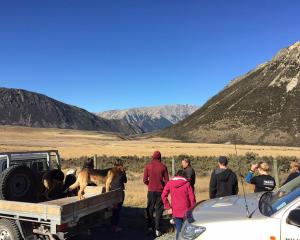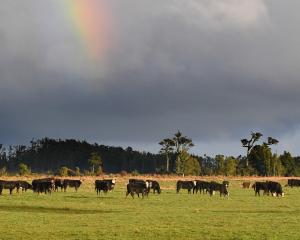
In Rabobank's latest Agribusiness Monthly, animal protein and sustainability analyst Blake Holgate said there had been a soft store cattle market.
Poor autumn pasture growth had impacted on feed availability and, consequently, demand for stock. At the same time, large supplies of dairy beef had come online, putting buyers in a strong position when it came to setting the sale price, Mr Holgate said.
Rabobank expected tightening domestic supplies to put upward pressure on farm-gate prices over the coming months, as production began to wind down from its seasonal peak.
Prices held steady through May, supported by solid export market returns and a weakening New Zealand dollar.
With plentiful supplies of cattle available for slaughter, there was also no pressure on processors to move prices higher to secure supply, resulting in very little price movement over the month.
As at the end of May, the North Island bull price was 1% higher month-on-month, averaging $5.20 cwt, while the South Island bull price was down 1% month-on-month to $4.90kg cwt.
Prime cattle prices were also steady with a North Island prime price of $5.50, up 1% month-on-month, and South Island prime price of $5.05, also up 1%.
Cattle supplies would begin to dry up this month as the national dairy cow cull wrapped up and farmers placed cattle on winter feed.
New Zealand's season-to-date cattle kill was similar to where it was heading into winter last year, sitting up 1.6% year-on-year as of April 27.
Given Rabobank expected the total kill for the 2018-19 season to be in line with last season's kill, cattle supplies through to the end of the season were likely to tighten along normal seasonal patterns. That would ensure there was an element of procurement pressure over the coming months.
United States imported beef prices had come back slightly off their recent highs which was normal at this time of year.
Demand from China remained strong, with reduced availability of domestic protein sources, due to the outbreak of African swine fever, forcing China to increase its reliance on protein imports, he said.













